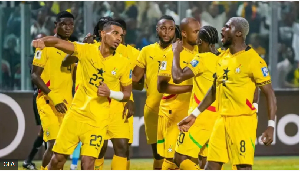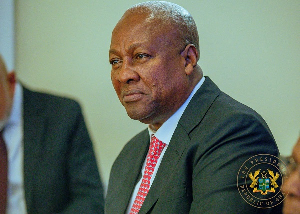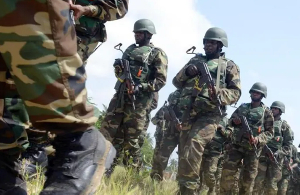Globally, education is facing an unprecedented crisis due to the COVID-19 pandemic. Most countries have closed down schools as part of the mitigation measures to stop the spread of the coronavirus. In Ghana, schools have been closed for close to three months affecting over 7 million learners and teachers at the pre-tertiary level.
Subsequently, the Ministry of Education (MoE) and the Ghana Education Service have introduced online and virtual/distance learning platforms, including iCampus/iBox and the Ghana Learning TV for students at the Pre-Tertiary Level. The Ghana Education Service has also taken steps to fumigate Senior High Schools across the country. However, the radio broadcast of learning content, which guarantees a more extensive reach of students, could not be launched on the announced date.
While we commend the Ministry of Education and the Ghana Education Service for the various measures being taken to minimize the impact of COVID-19 on education delivery, we urge the government to immediately resolve the obstacles preventing the launch of the radio learning platform to enable more learners to benefit from the virtual learning platforms. The Coalition is reliably informed that some districts are broadcasting learning programmes to children within their catchment areas. This could be replicated in other districts.
Again, we have observed with much concern that at the moment, the needs of children with disabilities are not being adequately catered for in the delivery of content on the various learning platforms. The Ministry of Education and Ghana Education Service must redouble their efforts to ensure no child is left out of learning even under these current circumstances.
With the support of the Open Society Initiative for West Africa (OSIWA),
GNECC has engaged the Ghana Education Service to support some children with disabilities with assistive materials so that they can participate in learning while at home.
We call on the Ministry to ensure that the needs of children with disabilities are prioritized in the utilization of funds from donor partners. We also urge other donor partners to commit at least 10% of their contributions to the education sector response to COVID-19 for children with disabilities.
Proposals for Re-opening of Schools
We commend the government for engaging stakeholders on the best possible ways of sending learners back to school. However, the current statistics from the Ghana Health Service shows that the rate of spread of the virus keeps increasing. The other challenge is that it is difficult to identify those who are asymptomatic and there is the likelihood of a high incidence in the spread of the virus. Furthermore, there is a high risk of the spread of the virus due to the crowdedness of the children in both the classrooms and dormitories.
The Ghana National Education Campaign Coalition, gauging from the public sentiment, is of the view that the reopening of schools should not be hastened. We believe that before schools are reopened, some measures must be put in place to ensure the safety of learners and education personnel.
The following recommendations could therefore be considered:
When, for whom, and how?
• Prioritize students in important transitional years i.e. JHS3 and SHS3.
• Stagger/phase the time table i.e different batches attending at different times: two shifts per day might be necessary to accommodate all the children per classroom.
• Improve and sustain distance learning programmes to complement in-school learning.
Schools facilities and environment:
• Ensure all basic schools are well cleaned and disinfected before they are re- opened.
• Ensure that proper safety measures are in place before reopening schools. These safety measures must include the provision of contactless veronica buckets/hand washing stations, provision of infra-red thermometers, improved sanitation facilities, and appropriate safety wear such as masks for students and teachers.
• Ensure there is a reduction in class sizes to a maximum of 20 in a class. This means more classrooms will be needed; teachers may have to work extra hours in the meantime; more teachers should be recruited for a short term to meet the demand, or consider having two shifts a day.
• Ensure honey-comb window designs in schools are changed with immediate effect to improve ventilation in schools.
• Make available information on how to combat the coronavirus in schools e.g. posting posters on measures to tackle coronavirus on walls in classrooms.
• Support schools on water installation to increase the availability of water all the time for handwashing and drinking.
• Use the school’s public address system to periodically disseminate best practices to the school community to observe protocols.
• All accessibility measures should be inclusive of children with special needs.
Student-Teacher Relationship
• Ensure all teachers undergo mandatory testing before going back to school.
• Liaise with the Ghana Health Service to provide mandatory temperature checks for students and teachers daily.
• Ensure that school heads and teachers are trained on the use of infra-red thermometer and enforcement of hand washing protocols as well as the use of hand sanitizers.
• Put appropriate measures in place to ensure full compliance with the recommended physical distancing measure of six feet between desks in small classes.
• Issue guidelines on teachers - student interactions while in school.
Inter-sectoral approach
• Establish measures to rapidly communicate any detected case in schools to health officials in the locality.
• Organize a coordinated approach (per district) to ensure that the support from relevant sectors (Health, Gender, Children & Social Protection, Local Government) and other stakeholders are fairly distributed.
Psychosocial support for students and parents
• Orient school heads and teachers to deliver psychosocial support and educate students on the health implications of the COVID-19 in addition to regular academic sessions.
• School heads and teachers should engage parents and students to understand their safety concerns and work with them before schools re-open.
• Resource Guidance and Counselling coordinators to provide counseling to prepare the mindset of the students when they return to school.
• Conduct training using radio, community information centers, and television on the use and disposal process for Personal Protective Equipment as part of continuous awareness on COVID-19 spread, symptoms, and prevention.
• Schools (public/private) with buses should observe social distancing as directed by the Ghana Health Service.
Monitoring and enforcement
• Conduct effective monitoring to ensure all safety protocols are observed accordingly.
• Enforce sanctions for anyone found guilty of flouting guidelines on COVID-19 protocols.
Our recommendations cover short, medium, and long term actions that the Ghana Education Service can take. GNECC is available to discuss further how these recommendations can be implemented across the country. We remain committed to
supporting the Ministry of Education and its agencies in ensuring the delivery of quality education for every Ghanaian child.
Signed
Press Releases of Wednesday, 27 May 2020
Source: Ghana National Education Campaign Coalition-GNECC












